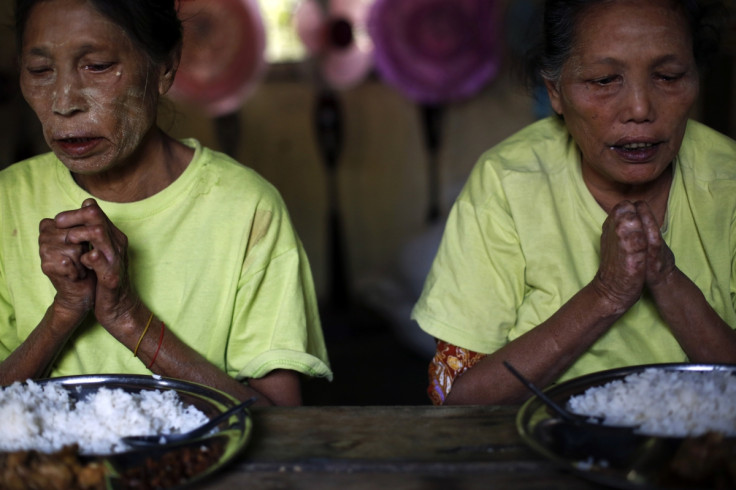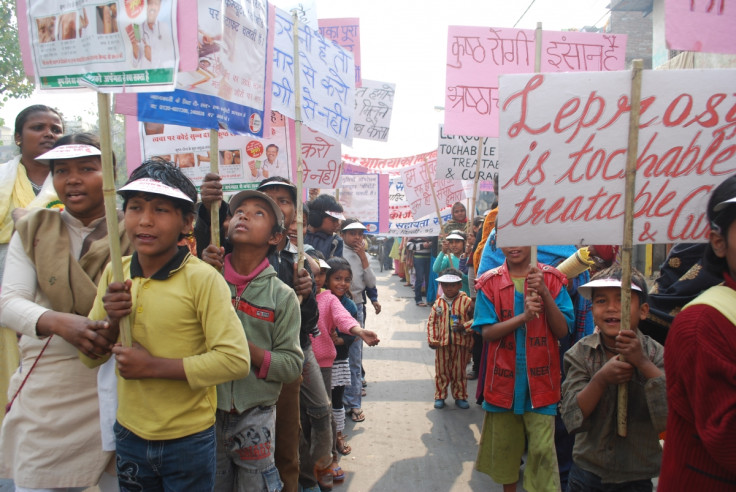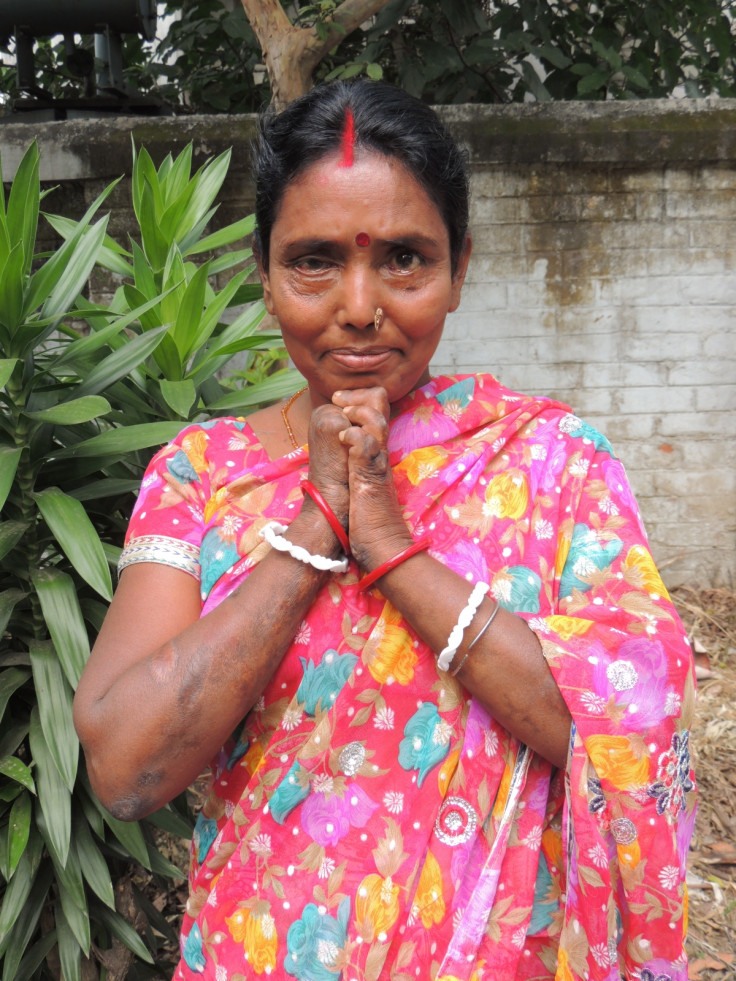World Leprosy Day Highlights Biblical Disease Still Considered 'Divine Curse'

World Leprosy Day 2014 on Sunday will highlight the problems faced by sufferers around the world. Its aim is to lobby governments to improve living conditions for people affected by the disease, and to combat the social stigma they still face.
Leprosy is a treatable, mildly infectious disease which, if diagnosed early, is easily cured. Nevertheless, three million people worldwide have been disabled as a result of late treatment, and a new sufferer is diagnosed every two minutes.
The stigma still associated with leprosy is also a major problem. Charlotte Walker, a spokeswoman for The Leprosy Mission England & Wales told IBTimes UK that leper colonies are still common, with sufferers shunned by their own families and communities.
"There's so much stigma and misunderstanding surrounding the disease... If they see clawed hands or leprosy affected hands they will never touch that person again."
At present, India has around 850 government-run leprosy colonies. Often, suffers will move to such colonies because they have been ostracised, or they are sent there by their families and told never to return.
Another major problem facing people with leprosy is access to work. A government scheme in India promises employment for the unemployed, but people need a bank account to get on the scheme, and bank managers have refused to open accounts for leprosy sufferers.

"It was a massive human rights breach and we helped them to fight it and they are working now which is amazing. But they are so ostracised from society, if they got on the bus the bus driver clocks their leprosy-affected hands and orders them off the bus.
"They're not even infectious, they've been treated years ago. They just carry the scars and therefore have the stigma for life that leprosy brings."
In Delhi, around 85% of the population is thought to believe leprosy is incurable. This lack of awareness also leads people to hide their symptoms until it is too late and they are left with scars – a "vicious circle", Walker said.
Suffers don't see it as a simple disease... they just think it's something they've done in a previous life or a punishment
Leprosy is also still grounds for divorce in India – meaning discrimination goes beyond social beliefs and into law. "People can't go to work anymore, even if somebody's uncle has leprosy they can be banned from school."
The deep-rooted fear of leprosy is embedded in religion and history. Many people believe it is a divine curse: "I think it's probably one of the oldest diseases. In the Bible Jesus was touching people with leprosy and obviously in those days he would have been killed just for doing that. It was such a completely radical thing to do. It's always been steeped in stigma.
"Sufferers tend to be quite fatalistic they go, 'Oh leprosy it is my fate, what can I do?' They don't see it as a simple disease... they just think it's something they've done in a previous life or a punishment.

"People are just ashamed of it - the word carries such stigma. People are absolutely devastated when they get a diagnosis and it's not really a big deal if it's caught early."
In one case, a woman from India named Manju Roy showed signs of leprosy soon after her marriage at the age of 14. She did not seek treatment when she saw light patches on her skin and when her husband found out, he told her to leave.
She had to have her right leg amputated and suffered nerve damage in both hands. The muscles in her face were weakened and for more than a decade she could not close her eyes. She was eventually treated at Leprosy Mission's Premananda Hospital in Kolkata. However, all her medical problems could have been avoided by early treatment.
"If they went and had treatment as soon as they noticed these white patches on their skin they wouldn't have any lasting disability but the tragedy is they hide the patches because they fear," Walker said.
"People become blind and they lose feeling their hands and their feet because of the nerve damage leprosy causes. They get very injured hands because they will be cooking and put their hand in the fire and won't feel pain, or walk around with a stone in their shoe and have a terrible ulcer and eventually need their lower leg amputated.
"It's just a tragedy really because it doesn't have to be like that."
World Leprosy Day is on Sunday 26 January.
© Copyright IBTimes 2025. All rights reserved.






















